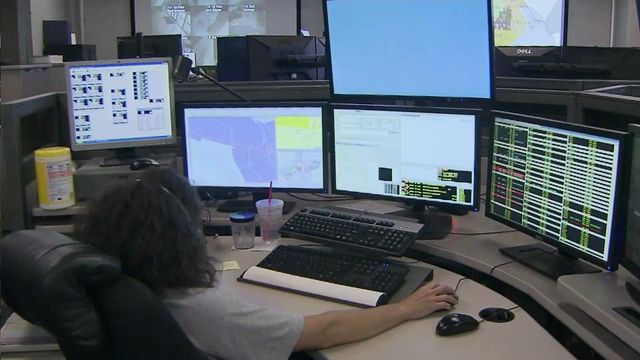Translation service caused delay in carjacking 911 call
Non-English-speaking callers to 911 in Wake County face delays in reporting their emergencies, because the system relies on a third-party translation service to assist with the calls.
Posted — UpdatedThis week in Raleigh, it took dispatchers two minutes to get a translator from Language Line Solutions on a call from a Spanish-speaking carjacking victim seeking help.
The call lasted nearly 14 minutes as the dispatcher went back and forth with the caller and the interpreter.
"There are certainly delays in translation," Barry Furey, director of the Raleigh-Wake Emergency Communications Center, said Friday. "The alternative is even worse, and that's not having the ability to provide the service to multiple languages."
Last year, Furey says, the center received 592,425 911 calls in which 4,526, or 0.008 percent, required the use of the language line.
Spanish is the dominant language for non-English calls – and the call center has several Spanish-speaking dispatchers – but he says the center each year gets calls in as many as 20 different languages, including French, Portuguese, Mandarin, Tigrinya and Arabic and that interpretation needs vary monthly.
Fiscally and operationally, the translation service makes sense, he said. The service costs nearly $80,000 a year, the approximate salary of two dispatchers.
Its use, Furey says, is a fairly industry-wide practice. Durham County also uses the service.
"Everyone knows it’s an issue," he said. "We wish there were a quicker way to do it, but until that technology is here, using a third-party translator is the most effective."
Leaders in the Latino community understand the use of a translation service but would like to see more bilingual dispatchers.
"We would encourage them to actively recruit people with language skills to better serve the community," said Angeline Echeverria, executive director of the nonprofit Latino advocacy group El Pueblo.
But Furey says it's not that simple.
"It would certainly help, but it wouldn’t be the solution, because we have to be available around the clock to answer every call that comes in," he said. "If an incident occurs in a predominately Spanish-speaking neighborhood, we can get a cluster of 911 calls from Spanish-speaking individuals that could not possibly be handled by just one or two Spanish-speaking employees."
Furey admits using the translation service has its own issues. For example, when a frantic caller gets hysterical, a dispatcher is trained to keep the caller calm and focused. Translators, however, are not.
• Credits
Copyright 2024 by Capitol Broadcasting Company. All rights reserved. This material may not be published, broadcast, rewritten or redistributed.





